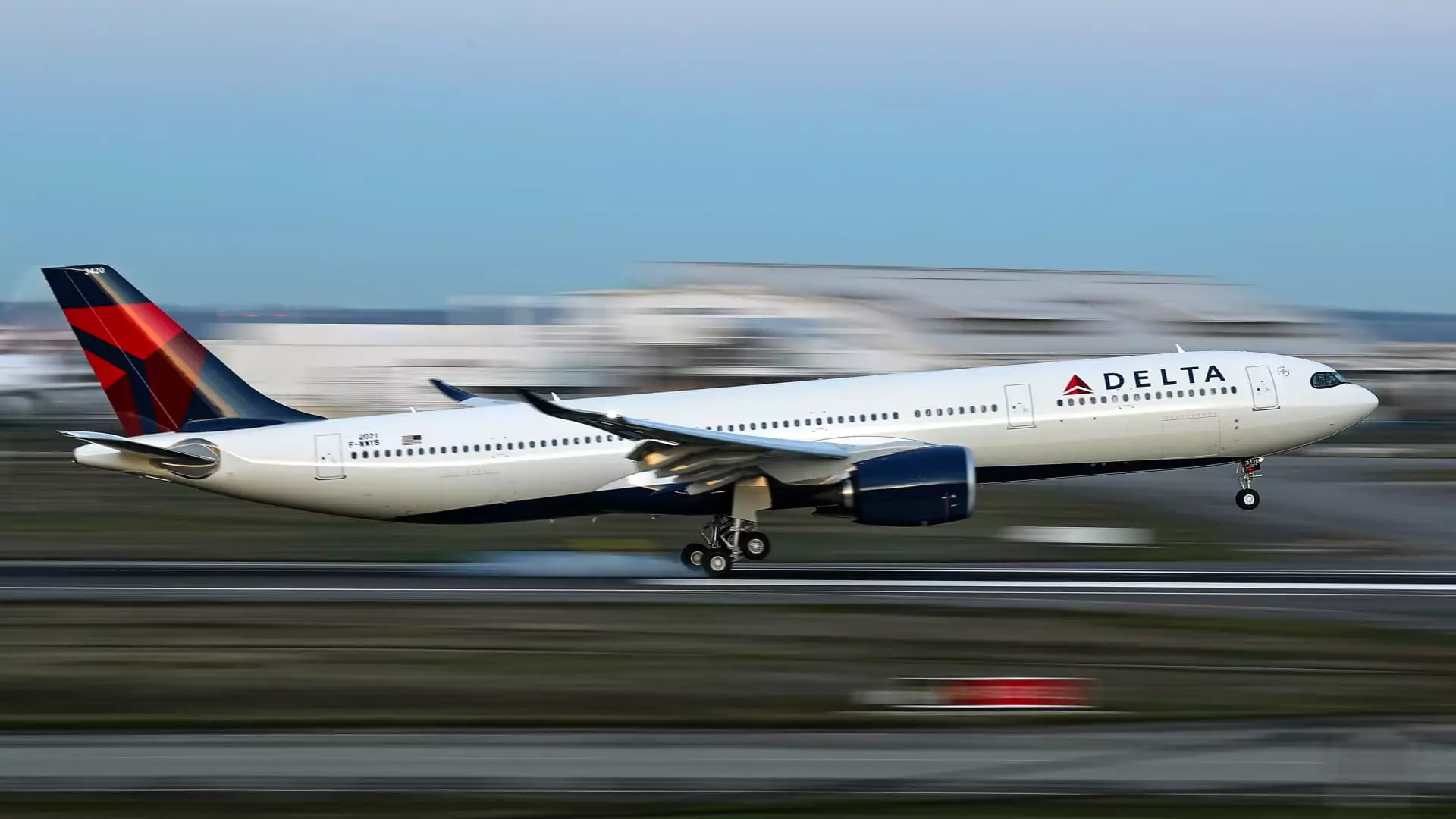Delta Air Lines recently announced its forecast for record revenue in the third quarter due to the booming summer travel demand, which is a positive sign of recovery for the airline industry. However, the company’s projection has fallen short of analysts’ estimates, indicating a potential challenge in meeting market expectations. While Delta expects sales to rise by up to 4%, analysts had estimated a growth rate of 5.8%, reflecting a significant variance in projections. The forecasted adjusted earnings per share of $1.70 to $2 also fell short of analysts’ estimated $2.05 per share, contributing to a decline in the company’s stock value.
The airline industry continues to face challenges as carriers expand flights, leading to increased competition and discounted fares. This competitive market environment has put pressure on Delta and other U.S. airlines, impacting their profitability and revenue projections. Despite a surge in summer travel demand, profits are under pressure due to rising costs and the oversupply of flight capacity. While the Transportation Security Administration reported record passenger screenings at U.S. airports, the airline earnings season reflects a mixed performance for carriers, with Delta standing out as the most profitable airline.
Profitability and Growth Strategies
Delta’s profitability in the U.S. airline industry has positioned it as a key player, outperforming competitors in revenue generation. The company’s focus on expanding premium seats to increase consumer revenue has been a strategic move to boost profitability. However, rivals like United Airlines are striving to match Delta’s financial performance by adopting similar growth strategies. Despite the challenges posed by increased flight capacity and fare discounts, Delta remains optimistic about its growth prospects in the third quarter.
In the second quarter, Delta reported adjusted earnings per share of $2.36, in line with analysts’ estimates, reflecting a strong performance for the airline. The company’s adjusted revenue of $15.4 billion fell short of Wall Street expectations but demonstrated a positive growth trend compared to the previous year. While net income declined by almost 30% from the previous year, operating expenses increased by 10%, highlighting the impact of rising costs on profitability. Delta’s commitment to maintaining or expanding corporate travel spending reflects a positive outlook on revenue generation in the upcoming quarter.
Delta’s revenue from international travel has shown resilience post-pandemic, despite increased competition from other airlines. The company’s strategic partnership with Air France has enabled it to expand its flight capacity to key destinations like Paris, contributing to revenue growth. Premium ticket sales have also increased, reflecting consumer demand for luxury travel experiences. Additionally, Delta’s collaboration with American Express has generated substantial revenue, indicating diversified income sources for the airline.
Looking ahead, Delta reiterated its full-year earnings forecast of $6 to $7 per share, indicating confidence in its growth prospects. The company expects to generate free cash flow of up to $4 billion, signaling potential financial stability in the coming quarters. Despite the challenges posed by industry overcapacity and fare discounts, Delta remains focused on expanding its premium seat offerings and maximizing revenue from consumer travel. With an optimistic outlook on revenue generation and profitability, Delta is poised to navigate the competitive airline market landscape successfully.

